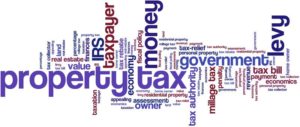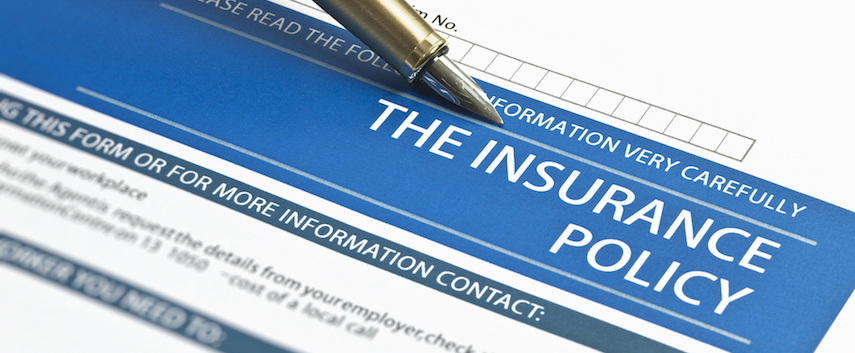Tax brackets, credits, and deductions change slightly each year, and sometimes they change dramatically with new laws. Though there haven’t been any major changes in 2019 that will affect your 2019 tax return, there are some recent changes to things like mortgage interest deductions and personal deductions you should keep in mind. Here’s what homeowners need to know about filing taxes in 2020.

This newsletter post is not legal or financial advice.
Always consult with a tax expert before filing your taxes.
The Basics for Tax Filing in 2020
Last year, all taxpayers saw a number of changes to their tax returns from President Trump’s Tax Cuts and Jobs Act (TCJA). These changes are still in effect, but filing your taxes this year in 2020 will be very similar to last year. To recap, here are some of the biggest changes from the TCJA:
- The personal exemption was eliminated and standard deduction increased: $12,200 for individuals, $18,350 for heads of household, and $24,400 for married couples.
- Deductible state, local, and property taxes are now limited to $10,000
- Mortgage interest debt ceiling reduced from $1.1 million to $750,000
When are Taxes Due in 2020?
One of the most important things you need to know about filing taxes in 2020 is when your tax return is due. Your 2019 tax return is due on Wednesday, April 15, 2020, unless you file for an extension. It’s a good idea to get necessary documents together well before then, so you have time to track down anything that’s missing.
What Documents Do Homeowners Need to File Taxes in 2020?
If you are employed, you’ll need your W-2s to complete your taxes, as well as other documents for other types of income or investments. To claim tax credits and deductions specifically for homeowners, you’ll need a few different documents.
- Form 1098 for the home mortgage interest deduction
- Records of property taxes paid if you itemize your return
- Home equity loan interest paid
- Records of home improvements and home improvements materials
Tax Credits and Deductions for Homeowners in 2020
All of these tax credits and deductions for homeowners in 2020 are only available on an itemized return. Since the standard deduction increased after the Tax Cuts and Jobs Act, it might not be worth it to itemize. You’ll want to add up all the deductions you could get from itemizing, including deductions for healthcare expenses, educational expenses, and other expenses, and see if you’ll get more from this than your standard deduction.
Deducting Mortgage Interest on Your 2019 Return
The mortgage interest deduction is one of the most important things homeowners should know about filing taxes in 2020. If you own a home, the interest that you pay on your mortgage is deductible. Your lender will provide Form 1098 showing how much you paid on mortgage interest. This deduction is for mortgage interest only, so you can’t deduct things like mortgage insurance, homeowners insurance, title insurance, or other costs. Also, you can only deduct interest on $750,000 of debt or less. If your home is more than this, only a portion of the mortgage interest you paid is deductible. You can use this deduction for a primary or second home, with some stipulations.
You’ll need to itemize your return to benefit from this deduction, so if your mortgage interest is less than your standard deduction ($12,200 for single people and $24,400 for married couples) then it might not be worth it to take this deduction. You’ll want to add up the other itemized deductions you could take advantage of to find the biggest benefits.
Deducting Home Equity Loan Interest on Your 2019 Return
Before the TCJA, you could have deducted interest from your home equity loan regardless of what you used the loan for. Now, you can only deduct this interest if you used the loan to improve your home value. For example, if you purchased a fixer-upper intending to remodel and renovate it, and you took out a home equity loan to do it, you could deduct the interest you pay. This interest is deductible in the same way as your mortgage interest (see above), as long as it is used to repair or remodel your home. The deductible interest is subject to the same ceiling as the previous deduction, and you must combine the total debt. This means the total debt you can deduct interest from cannot be greater than $750,000.
Deducting Property Taxes and Local Income Tax
Before the TCJA, a homeowner could deduct all of the property taxes they paid throughout the year. It was also possible to pay property taxes early if you had a good year, or expected a tougher time later on. The TCJA put a $10,000 cap on deductible property taxes as well as state and local income taxes. This means, if you add up your property taxes and your state and local income taxes, you can only deduct $10,000 of this.
These important deductions for homeowners in 2020 can help you keep more of your hard-earned money. These deductions can also make it easier to own a home, and make your budget more manageable. Talk to your tax preparer about tax deductions you can use as a homeowner, and any documents you’ll need to claim them.
Article courtesy of Berhshire HomeServices Tomie Raines Realtors



